British Open Championships - The Top 10 Most Successful MDs at the Open
7-Sep-2005We have once again trawled through the record books to find out who have been the most successful Musical Directors (or conductors as they should really be called) at the British Open since the first contest in 1853 to the 153rd this year.
There are some great names (and we do mean great as well) with some of the records beggaring belief. How some of these men actually had the time (some belong to the pre motor car age, let alone the pre motorway age) to get to rehearse the bands before the big day would have been a miracle – as would their stamina on the contest stage. A couple of modern MD's make the list – including two who are still aiming to add more victories to their role of honour this year, but the top boys hark back to an age when conducting leviathans ruled the brass band world.
These are the top 10 then (14 actually due to ties). We bet some of the bands this weekend would love to have been able to book their services.
1. John Gladney
2. William Halliwell
3. Harry Mortimer
4. Alexander Owen
5. Peter Parkes
6. William Rimmer
7. Roy Newsome
8. Edwin Swift
9. Geoffrey Brand
Leonard Lamb
John Lord
John Greenwood
William Wood
David King
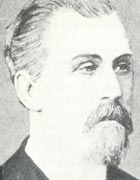 1. John Gladney (1839 – 1911)
1. John Gladney (1839 – 1911)
Record
Debut: 1872
First Band: Meltham and Meltham Mills – drew number 4 in 1872 and came 3rd
Last Band: Kingston Mills – drew 10 in 1911 and were unplaced
Appearances: 113 (although this may vary due to incomplete records)
Wins: 19 times
Runners Up: 22 times
Third Places: 7 times
Fourth Places: 6 times
Fifth Places: 6 times
Sixth Places: 9 times
Unplaced: 44 times (this figure may vary slightly)
The undisputed champion. Gladney was the son of the bandmaster of the 30th East Lancs Regiment and was a professional musician who for over 30 years was a clarinettist with the Halle Orchestra. His record at the Open is quite phenomenal. At least 113 bands were conducted by him (it may have been more, but the records are not complete) and he won the title on no less than 19 occasions, between 1873 and 1904.
He took bands by the score at the contest, including winning four of the top five places in 1875 with the bands he took on the day. He conducted all the best bands, including the great Meltham Mills whom he won over £4000 in prize money with between 1871 and 1883 and recorded the first hat trick of wins by a band between 1876 and 1878 with them. Personally he won the contest four years in a row between 1875 – 1878, repeated the feat between 1884 – 1887 and then topped it all by winning the Championship for six years in a row between 1899 and 1904. Can you imagine anyone doing that today?
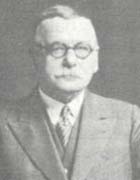 2. William Halliwell (1864 – 1946)
2. William Halliwell (1864 – 1946)
Record
Debut: 1903
First Band: Wigan Rifles – drew number 8 and were unplaced in 1903
Last Band: Black Dyke – drew number 9 and were 5th in 1939.
Appearances: 142
Wins: 17 times
Runners Up: 13 times
Third Places: 12 times
Fourth Places: 6 times
Fifth Places: 6 times
Sixth Places: 11 times
Unplaced: 77 times
The great Mr Halliwell (he was always known as Mr) won the title on 17 occasions and was the most successful conductor at the British Open during the 20th Century. His parents wanted him to be an organist, but he first became a cornet player of repute before branching out into the conducting stakes in the late 1890's.
His first win came in 1910 with Fodens, seven years after his debut, and for the next 17 years he was nigh on unbeatable at the contest. He won four in a row between 1910 and 1913, did the hat trick between 1926 and 1928 and rounded things off with a six in a row flourish between 1931 and 1936. He conducted all the top bands and won the title with Fodens, Hebden Bridge, Wingates, Besses and most famously of all, Brighouse and Rastrick.
He too, conducted multple bands on the contest stage on the day, including five of the top six prizes in 1913 as well as leading four other bands out of the prize list.
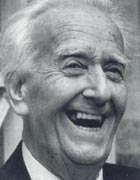 3. Harry Mortimer (1902 – 1992)
3. Harry Mortimer (1902 – 1992)
Record
Debut: 1936
First Band: The Luton Band – came 5th in 1936
Last Band: The Fairey Band – drew 16 (last band on) and came 6th in 1957
Appearances: 33
Wins: 9 times
Runners Up: 5 times
Third Places: 2 times
Fourth Places: 3 times
Fifth Places: 3 times
Sixth Places: 4 times
Unplaced: 7 times
No record book would be complete with Harry Mortimer's name being high on its list of achievements. The great man won the title on 9 occasions, between 1941 and 1956, most famously eight times with Fairey Aviation, but also recording success with Bickershaw Colliery in 1946.
He made his debut with the Luton Band in 1936, coming 5th on "Robin Hood" before making the Fairey debut in 1938 when they were unplaced. After that though the contest was his, and he won the double in 1941 and 1942, achieved the quartet of wins between 1944 and 1947, before a double win again in 1949 and 1950 and a final send off in 1956. His last appearance at the contest was the following year when he came 6th with Fairey.
The last great "Leviathan", he conducted more than one band on the stage on a few occasions, but he had the knack of knowing exactly how much it took to succeed – and he did.
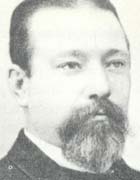 4. Alexander Owen (1851 – 1920)
4. Alexander Owen (1851 – 1920)
Record
Debut: 1870
First Band: Stalybridge Old – drew 9 and were unplaced in 1870
Last Band: Besses o' th' Barn – drew 13 and were unplaced in 1919
Appearances: 131 times (this may vary as early records are incomplete)
Wins: 7 times
Runners Up: 3 times
Third Places: 7 times
Fourth Places: 8 times
Fifth Places: 11 times
Sixth Places: 7 times
Unplaced: 88 times
Owen bestrode the banding world for over 50 years. He was brought up in an orphange before being apprenticed to a cavalry bandmaster where he learnt his trade. His amazing talents led him to become the greatest figure in the movement, first as a player influenced by John Gladney (he played as principal cornet in the Meltham and Meltham hat trick band) and then as a professional conductor.
He made his debut as a conductor at the contest in 1870, but it wasn't until 1879 that he first came in the prizes, with the Boarshurst Band. After that he plied his trade far and wide – winning the contest on seven occasions, first with Black Dyke in 1880 and again in 1881, and then making it a hat trick with Clayton le Moor the following year. With Besses o' th' Barn he won again in 1892 and 1894, before he took the title with Mossley in 1897 and finally with Kingston Mills in 1901.
In 1885 in a field of 31 conducted 8 different bands, and took 6 in 1889, coming unplaced with them all! He continued to conduct multiple bands at the contest right up to his last appearance in 1919 when he led his most famous band, Besses for the last time.
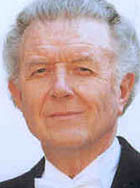 5. Peter Parkes
5. Peter Parkes
Record
Debut: 1976
First Band: Black Dyke Mills – drew 20 and won on Epic Symphony in 1976
Last Band: Desford 2005
Appearances: 29 times to 2005
Wins: 6 times
Runners Up: 4 times
Third Places: 1 time
Fourth Places: 1 times
Fifth Places: 2 times
Sixth Places: 1 time
Unplaced: 13 times
Still conducting at the contest to this day, Peter Parkes made his amazing debut at the contest in 1976, and became one of the rare breed to win it on his first appearance. Black Dyke drew number 20 on "Epic Symphony" and won – a feat he repeated the very next year.
The Dyke years were golden ones indeed and from 1976 – 1988 he won the contest five times, including two doubles. In addition he also came second three times as well. After that it was off to Williams Fairey with whom he won it again in 1993 for a sixth time, whilst since his debut he has appeared in the prize list right up to 1998. Since then he hasn't featured, but there is no doubt that he belongs right up here with the very best who have won at the Open. This year sees his 29th appearance with his 6th band.
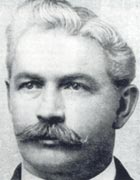 6. William Rimmer (1861 – 1936)
6. William Rimmer (1861 – 1936)
Record
Debut: 1895
First Band: Pemberton Old – drew number 6 and were unplaced
Last Band: Black Dyke Mills – drew 20 and came 2nd in 1909
Appearances: 58 times
Wins: 5 times
Runners Up: 3 times
Third Places: 3 times
Fourth Places: 4 times
Fifth Places: 7 times
Sixth Places: 4 times
Unplaced: 32 times
Rimmer was born in Southport to a bandmaster of the Lancashire Volunteer Rifles and as a young man he made himself into one of the finest cornet players in the country under the steely eye of Alex Owen at Besses o' th' Barn. Their rivalry became the stuff of legend and before long he was fast surpassing his mentor as the finest conductor of his generation.
Rimmer made his debut at the Open in 1895, but came away unplaced. However, the following year he gained second place with Kingston Mills, before losing out to Owen the following year. His first win came with Irwell Springs in 1905 and from that time until 1909 he was unbeatable at the contest. His 5 wins were with Irwell, Wingates in 1906 and 1907, then Black Dyke in 1908 and finally with Fodens in 1909, although his last actual conducting performance was with Black Dyke that year (they drew 20th and came 2nd to Fodens who drew number 8). He then retired.
He too conducted more than one band at the contest on the day, including winning 5 of the top 6 places in 1909. Amazingly he also won the Nationals for the five years from 1905 to 1909, and so claimed five consecutive "Doubles" – and remained unbeatable until his retirement. Ill health dogged him though and this was perhaps the reason for his decision. He died in 1936, his reputation sealed.
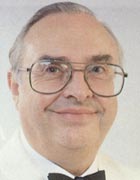 7. Roy Newsome
7. Roy Newsome
Record
Debut: 1962
First Band: Slaithwaite – drew number 11 and were unplaced in 1962
Last Band: Desford – drew number 3 came 13th in 1999
Appearances: 29
Wins: 5 times
Runners Up: 1 time
Third Places: 1 time
Fourth Places: None
Fifth Places: 1 time
Sixth Places: 2 times
Unplaced: 19 times
Roy Newsome won the British Open on 5 occasions, with four separate bands and in three separate decades.
He made his debut at the contest with the Slaithwaite Band in 1962 on "Island Heritage" and his first four years with them at the contest didn't get him a prize winning return. He then became Resident Conductor with Black Dyke, and so his opportunities to conduct at the Open were diminished as Col, Jaeger and Geoffrey Brand took the baton as Professional Conductor with the band. He did however appear at the contest with Kibworth in 1971 before directing Black Dyke to two wins (and their hat trick) in 1973 and 1974. In 1975 he appeared as an adjudicator, and then handed over the baton to Peter Parkes.
However, he certainly wasn't finished at the contest and he returned with Besses in to win in 1982 to win the contest for a third time and then for a fourth time with Wiliams Fairey in 1987. To cap it all he entered the 1990's with Sun Life and won it again on "Le Roi D'Y's" – his fifth win. He last appeared on the stage with contesting baton in 1999 with Desord.
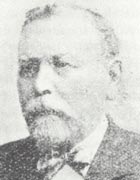 8. Edwin Swift (1842 – 1904)
8. Edwin Swift (1842 – 1904)
Record
Debut: 1868
First Band: Linthwaite – drew number 5 and were unplaced in 1868
Last Band: Linthwaite – drew number 3 and were unplaced in 1903
Appearances: 75
Wins: 5 times
Runners Up: 5 times
Third Places: 8 times
Fourth Places: 6 times
Fifth Places: 8 times
Sixth Places: 7 times
Unplaced: 36 times
Swift was a self-taught musician who was a weaver up until the age of 32. Born in Linthwaite he first learnt the drums and then the cornet before becoming the bandmaster and Principal Cornet at his home town band aged 14!
In 1874 he led this band to victory over the almost unbeatable Meltham Mills, before winning the contest again in 1883 with Littleboro, a double with Wyke Temperance in 1888 and 18889 and a final victory with Wyke in 1898 – 24 years after his first.
He too was a multiple conductor on he contest stage, taking six bands in 1885 and 7 in 1886, but his longevity was remarkable none the less – as was his consistency in getting bands into the prizes. His last performance on stage was fittingly with his home band in 1903, a year before his death and 35 years after his debut with them. The last great of the trio with Gladney and Owen, he was the first to die.
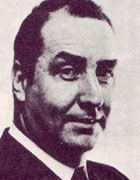 9. Geoffrey Brand
9. Geoffrey Brand
Record
Debut: 1968
First Band: Black Dyke – drew number 10 and won on "John O' Gaunt" in 1968
Last Band: Brighouse and Rastrick – drew 16 and came 9th in 1990
Appearances: 17
Wins: 4 times
Runners Up: 2 times
Third Places: None
Fourth Places: 1 time
Fifth Places: None
Sixth Places: 1 time
Unplaced: 9 times
Leonard Lamb (1910 - 1973)
Record
Debut: 1954
First Band: Oldham – drew 13 and were unplaced in 1954
Last Band: Fairey – drew 12 and were unplaced in 1968
Appearances: 11
Wins: 4 times
Runners Up: 3 times
Third Places: None
Fourth Places: 1 time
Fifth Places: None
Sixth Places: None
Unplaced: 3 times
John Lord
Record
Debut: 1862
First Band: Bacup – drew 5 and came 4th in 1862
Last Band: Newchurch 4th Lanc Rifles R.V. – drew 9 and were unplaced in 1875
Appearances: 12
Wins: 4 times
Runners Up: 2 times
Third Places: 1 time
Fourth Places: 3 times
Fifth Places: None
Sixth Places: None
Unplaced: 2 times
John Greenwood
Record
Debut: 1910
First Band: Hebden Bridge – drew 2 and came 5th in 1910
Last Band: Cadishead – drew 23 and were unplaced in 1949
Appearances: 130
Wins: 4 times
Runners Up: 10 times
Third Places: 8 times
Fourth Places: 9 times
Fifth Places: 11 times
Sixth Places: 9 times
Unplaced: 79 times
William Wood
Record
Debut: 1915
First Band: Lee Mount - drew number 1 and were unplaced 1915
Last Band: Besses - drew number 1 and were unplaced 1962
Appearances: 37
Wins: 4 times
Runners Up: 1 time
Third Places: 2 times
Fourth Places: 3 times
Fifth Places: 1 times
Sixth Places: 2 times
Unplaced: 24 times
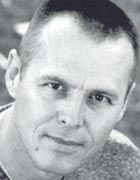 David King
David King
Record
Debut: 1987
First Band: Kennedy Swinton off number 1 draw on "Freedom" and came 7th
Last Band: Currently with YBS in 2005
Appearances: 17th time in 2005
Wins: 4 times
Runners Up: None
Third Places: 1
Fourth Places: 1
Fifth Places: None
Sixth Places: 2
Unplaced: 8
Joint ninth place goes to six conductors, all of whom have memorably made their mark at the contest over the years.
Geoffrey Brand conducted 3 bands to four victories in three separate decades – Black Dyke, Brighouse and Grimethorpe, whilst he also stopped Black Dyke from a "Double Hat trick" at the contest in 1978 when he directed Brighouse to victory over their traditional rivals for their first win since 1936. In addition he also directed Grimethorpe to become the first band to win the contest twice playing the same test piece, "Comedy Overture" in 1984.
Leonard Lamb, achieved the hat trick with Fairey's in 1961, 1962, 1963 and then showed everyone that he was something very special by winning it again with them in 1965. In between he also got 2nd place with the Lindley Band in 1964 as well as 2nd with Fairey's in 1960 and fourth in 1959. For a period he was nearly unbeatable at Belle Vue. He made his debut in 1954 with Oldham before returning with Fairey in 1959. His last appearance was with Fairey in 1968, and within five years he was dead.
John Lord made his debut in 1862 when he directed the Bacup Band into 4th place, and his victories came in 1864, 1865, 1869 and 1870. He only conducted 12 times at the contest – winning four, coming second twice, one third and three fourths. Only two of his bands didn't come in the prizes.
John Greenwood, made 121 appearances at the Open between 1910 and 1949 – conducting multiple bands on many occasions, including 7 in 1932 and 6 in 1926 and 1928. In the 39 years he took bands he won in 1914, 1916, 1917 and 1925, as well as coming second on 10 occasions, thirds 8 times, fourth 9 times, fifth 11 times and sixth 9 times. His last appearance was with the Cadishead Band in 1949 when they came unplaced off the number 23 draw.
William Wood has the distinction of conducting the winning bands at the Open some 39 years apart. His four wins started in 1920 when he directed Besses to victory, and he repeated the feat again in 1937 with them. His third win came with Wingates in the last contest before the Second World War in 1939, before a twenty year hiatus and that final win with Besses in 1959. The 1920 win in particular was special as Wood dedicated to Alex Owen who had died in the July of that year. Wood made his final appearance with Besses in 1962 off the number 1 draw - rather ironic as he started his debut off the number 1 slot too.
Finally, Professor David King, the Australian who has become the closest in the most modern of times to become a conducting leviathan in the mould of the greats such as Gladney, Halliwell and Owen. His hunger for contesting success at all major contests is unabated (he only lacks the Nationals to complete his CV), but he now joins the great conductors here at the Open after securing his fourth victory in 2003 with the Yorkshire Building Society Band. Can he make it five in 2005 and join Newsome, Swift and Rimmer as conductors with a nap hand of Open victories?
So there you have them. The most successful conductors in Open history in terms of wins – and isn't that what counts at the end of the day. There is little doubt that we will never see the like of Gladney, Owen and Halliwell again, but in 100 years time perhaps a few of the MDs on display at Symphony Hall this year may squeeze into the frame. In years to come.















